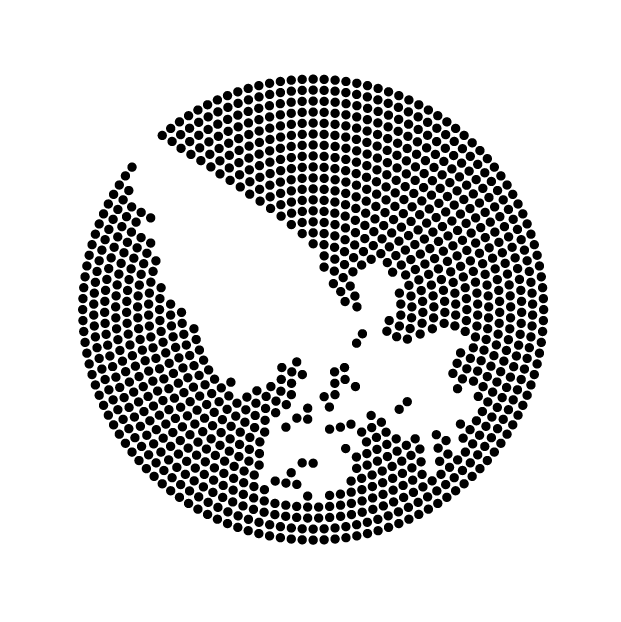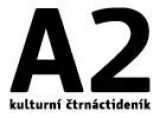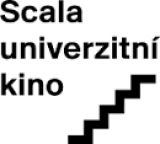History
Join us in creating the HaDivadlo Memoirs.
Over the course of its existence since the 1970s, HaDivadlo has built up its position in the Czech theatre context as an alternative theatre with a particular view of the world and its own poetics. Since the beginning it has presented itself as the scene of distinctive authorial poetics, demanding dramaturgy and strong creative personalities. HaDivadlo is a member of the Centre for Experimental Theatre.
Milestones since 1974
1974 Hanácké divadlo (the Haná Region Theatre) was founded in Prostějov based on an administrative decision. In the same year the director Svatopluk Vála and Josef Kovalčuk were accepted in theatre management, the latter as a dramaturge, organisational secretary and technician. The core of the theatre ensemble was formed by the members of Vála´s former LŠU Studio and amateurs, mainly students and guest actors (from Olomouc and Uherské Hradiště).
1977 The ensemble managed to gain permission to leave the proscenium theatre space and moved into the irregular space of the lecture hall in Kotěra´s Národní dům (National House). A permanent theatre ensemble was formed (Miloš Černoušek, Miloslav Maršálek, Irena Hýsková and Jan Kohut).
1978 The director and dramaturge Arnošt Goldflam became a member of the ensemble. The director Vala created his theatre triptych Ekkykléma (The Eccyclema) – Depeše na kolečkách (A Despatch on Wheels) – Chapliniáda (The Chapliniad) (1977-79). Goldflam directed Kovalčuk´s scripts Komedie o strašlivém mordu ve sviadnovské hospodě L.P. 1715 aneb Ondráš (The Comedy about a Frightening Murder in Sviadnov´s Inn A.D. 1715 or Ondráš) and Život ze sametu barvy lila (A Life of Lilac-Coloured Velvet).
1979 HaDivadlo (the still-unofficial abbreviation expresses the fondness and connection with unconventional poetics of studio theatres) was about to be closed down. Thanks to the reactions of theatre-goers and respect of experts, the official authorities did not carried out their intention. Later HaDivadlo was incorporated into the Brno State Theatre and together with the Theatre on a String became its experimental stage.
1980-83 The stage-designer Jan Konečný, visual artists Milivoj Husák and Václav Stratil, the composer Jiří Bulis and the songwriter Václav Koubek started to cooperate with HaDivadlo. Then the characteristic features of the theatre poetics included plotlessness, associativity and the penetration of inner and outer reality. New productions were created, e.g. Hra bez pravidel (Game without Rules), Bylo jich 5 a půl (There Were Five and a Half of Them), Ztráty a nálezy (Lost Property Offices).
1982 The ensemble changed with the arrival of Barbora Plichtová, Hana Müllerová, Břetislav Rychlík, Ján Sedal and later Iva Klestilová. Svatopluk Vála leaves.
1985 The situation in Prostějov became unbearable for HaDivadlo due to the official authorities´ objections. Therefore the theatre moved to Brno. The decade in Prostějov is symbolically closed with a festival of theatre productions, guest performances of associated theatre ensembles and by the premiere of the production of Útržky z nedokončeného románu (Scraps of an Unfinished Novel)
The first seat of HaDivadlo in Brno is Klub školství a vědy Bedřicha Václavka (the Bedřich Václavek Education and Science Club). In the 1980s the theatre´s productions include: Cesty (Ways), Dnes naposled (Today for the Last Time), Dcery národa (Daughters of the Nation), Žádná tragédie (No Tragedy) and Proces (The Trial).
1988 HaDivadlo moved to the Cultural Centre in Šelepova Street. The persevering tendency and effort for wide-open political and artistic expression results in a common project of the documentary theatre Rozrazil together with the Theatre on a String. Thus the ensemble wanted to participate directly in changing the social and political situation. Despite several bans and threats of cancellation of both ensembles, Rozrazil is performed from October 1988 until November 1989.
1989 On 17th November during performance of Rozrazil at Junior Club, Na chmelnici in Prague, a student beaten by the police at the demonstrations on Národní třída was brought on stage by the actors to present the first public testimony. The following day at the time of the matinée performance (4 p.m.), both ensembles were the first theatres to announce a strike in Czechoslovakia. They immediately became involved in other civic and theatre activities where they participated in the Velvet Revolution.
1991 HaDivadlo found a new venue after a difficult search – it was a small hall on Sukova Street, which was christened Kabinet Múz (Cabinet of Muses), which was also the name of the new artistic programme. The director Jan Antonín Pitínský also participated in its creation and thus the Amateur Circle and HaDivadlo were joined together.
The first premiere at the new venue was Ladislav Klíma´s Lidská tragikomedie (Human Tragicomedy – adaptation by Miloš Černoušek, directed by Arnošt Goldflam), which became one of the most important events of the Czech post-November theatre.
Apart from theatre productions there were many other activities on the programme of Kabinet Múz – such as a literary and musical café, exhibitions, author´s readings, discussions, artistic and para-theatre events, shows and performances of associated ensembles, publishing a journal and other publications and dances of the last day.
HaDivadlo enters Kabinet Múz with a number of new faces, that had gradually appeared in the ensemble since the late 1980s, including Mariana and Hynek Chmelař, Michaela Maláčová and Naďa Kovářová. The members of the Amateur Circle included J.A. Pitínský, Marie Ludvíková, manager-actor Milan Sedláček, actor, musician and composer Martin Dohnal, cooperating architect, stage designer and actor Tomáš Rusín, M. Zavadil, J. Ludvík, Štěpán Rusín and others. The poet, lyrics writer and rock musician Karel David became the manager and Johana Halounová, Dana Poláková and Gustav Řezníček arrived from theatre schools.
1992 Director Pitínský left, followed later by the director Goldflam. Probably the most popular production in the history of the ensemble was created – the retro-musical Hvězdy na vrbě (Stars on the Willow) by Karel David.
1996 The director David Jařab became artistic director together with Iva Voláková (Klestilová). After Josef Kovalčuk leaves the theatre, Luboš Balák becomes a new dramaturge. Fresh graduates from the Janáček Academy who join the theatre ensemble include significant personalities, such as Marek Daniel, Pavel Liška, Josef Polášek and Tomáš Matonoha.
1999 Jiří Pokorný became the new artistic director after a short period of change when Břetislav Rychlík, Janoš Krist and Miloš Černoušek held this position. Pokorný based his artistic vision of the theatre on searching and producing contemporary Czech and foreign dramatic texts.
2004 HaDivadlo moved from Kabinet Múz to a former cinema in the Alfa arcade. When Jiří Pokorný left the theatre, Valeria Schulczová became the artistic director. Until then she had been the financial director. In June one of the foundation members of the theatre Josef Kovalčuk became the head of management. Oxana Smilková became the full-time director and Ondřej Elbel became both director and dramaturge.
2005 Luboš Balák (Artistic Director) and Ondřej Elbel (director and dramaturge) won the competition for theatre management. New actors join the ensemble – Helena Baráthová, Kamila Kalousová, Václav Neužil and Jiří Hájek. A number of new productions were created, including Luboš Balák´s authorial projects. ; “Studio”, a new venue for small-size productions was created. The pivotal dramaturgical project of the period was the cycle Proměny 20. století (Changes of the 20th century) which attempted to reflect on the individual decades of the previous century and brought about a number of remarkable productions.
2007 Marián Amsler became a full time director.
2010 When Luboš Balák left the ensemble, Marián Amsler took up the post of artistic director. Amsler worked with the dramaturge Jan Havlice and later, after his departure, with the dramaturge and playwright Anna Saavedra. Under Amsler´s leadership HaDivadlo worked closely with the Prague theatre Letí and the Centre for Contemporary Drama. As part of the residential programmes for contemporary authors, HaDivadlo presented the plays Jsem Kraftwerk! (I am Kraftwerk!) by Viliam Klimáček, Tajná zpráva z planety matek (A Secret Message from the Planet of Mothers) by Anna Saavedra and Roky 90: Láska, pank a Nesmírnost (The 1990s: Love, Punk and Immensity) by Ondřej Novotný.
2012 The dramaturge Jan Havlice left. Marián Amsler started to work with the dramaturge and playwright Anna Saavedra. The dramaturgical cycle Konec civilizace (The End of Civilization) is created, which is completed by the festival Apocalypse Now. During Amsler´s period, the theatre dramaturgy clearly inclined to contemporary dramatical texts especially of German origin by Falk Richter, David Gieselmann, Marius von Mayenburg, etc.
2014 Amsler finished his artistic work in HaDivadlo with the production of Vyhnání Gerty Schnirch (The Explusion of Gerta Schnirch) and he left at the end of the year.
2015 The director Ivan Buraj became the artistic director of the theatre. Previously, he had made his name with the authorial production Kreatury (Creatures) and the authorial adaptation of Kafka´s Trial under the title Záře integrace (Blaze of Integration).











